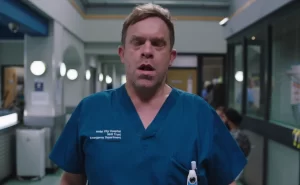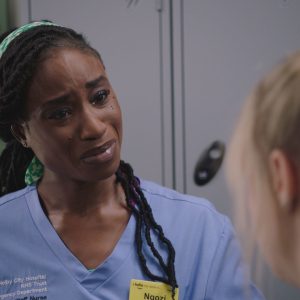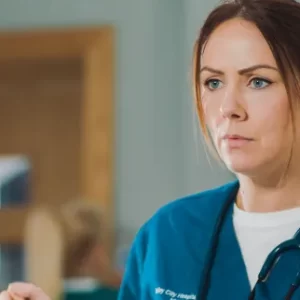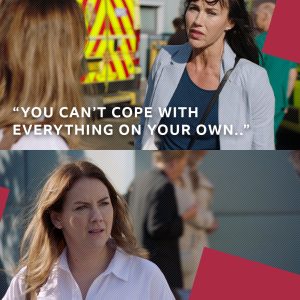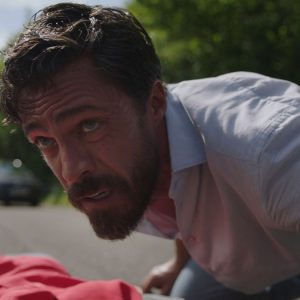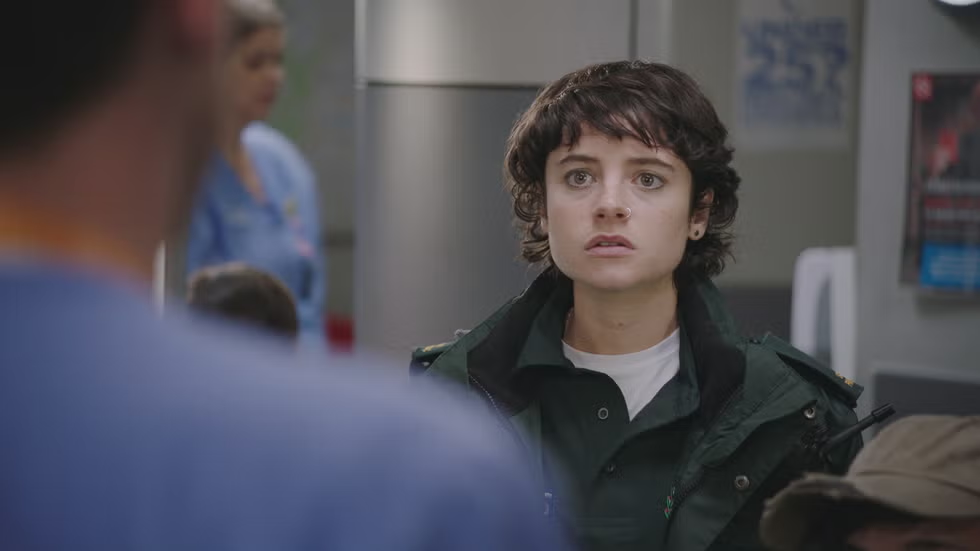In a powerful, introspective episode, Dylan Keogh is forced to confront the darkest chapters of his own past when a young patient arrives at Holby ED bearing a striking resemblance—not physically, but emotionally—to the man Dylan once was.
The episode begins with a paramedic bringing in 23-year-old Leo, found unconscious in an alley after a suspected alcohol and drug overdose. Leo is combative, resistant to treatment, and disinterested in saving himself. When Dylan takes the case, he’s immediately rattled—not by Leo’s injuries, but by the person he sees behind the symptoms.
Leo is sarcastic, intelligent, and emotionally guarded. He’s had multiple stints in rehab and countless ER visits, all ending the same way: with him storming out or vanishing. Most of the ED staff are already fed up before they even reach his bed. But not Dylan. There’s a flicker of recognition in his eyes.
As the shift progresses, Dylan becomes increasingly fixated on Leo. He reads through his old medical records, learning about his toxic family background and failed attempts at detox. Flynn, noticing Dylan’s hyperfocus, warns him to step back. “You can’t save everyone,” he says. “Especially not the ones who don’t want it.” But Dylan isn’t convinced this is about saving Leo—it’s about understanding him.
In a rare moment of emotional vulnerability, Dylan opens up to the patient. He doesn’t reveal everything, but he shares just enough—how he once nearly lost everything to alcohol, how he burned bridges, and how it took years to rebuild his life. Leo scoffs, but the words hit somewhere deep. Later, he asks Dylan, “What made you stop?” Dylan’s answer is simple: “I didn’t want to die.”
Their connection deepens, and Leo lets his guard down just enough to accept treatment. But the progress is short-lived. When a social worker arrives to discuss long-term rehab options, Leo lashes out, accusing the system of giving up on him too many times. He rips out his IV, storms down the corridor, and disappears.
Dylan is crushed. He takes it personally, believing he failed again. He’s so shaken that he leaves early, retreating to his office with a bottle of water—and a hidden flask. He holds it, stares at it for a long time… before tossing it into the bin. The moment is subtle but seismic.
That night, Leo is brought back in by paramedics—this time after being attacked and left with a fractured rib. But instead of more anger, he’s quiet. “You came after me,” he says to Dylan. “No one usually does.” Dylan doesn’t respond with sentiment. Instead, he calmly stitches the wound, hands him a pamphlet for a peer recovery program, and says, “I won’t chase you again. But I’ll be here if you come back.”
The episode ends with Dylan watching Leo leave—this time with the pamphlet in hand. There’s no dramatic breakthrough or miraculous turnaround. But there’s a spark of possibility. And for Dylan, that’s enough.
Back in the break room, Rash gently asks him if he’s okay. Dylan just gives his usual half-smile. “Some ghosts don’t want to be exorcised,” he says. “But sometimes they just want to be seen.”
This episode is a standout, offering a raw, unfiltered look at addiction through Dylan’s deeply personal lens. It doesn’t offer easy answers, nor does it rely on heavy dramatics. Instead, it leans into quiet, grounded emotion. It’s about relapse, recovery, and the thin line between the two—a line Dylan walks every day.
With understated brilliance, Casualty reminds viewers that healing isn’t always loud. Sometimes it’s in the silent gestures, the honest conversations, and the choice to keep showing up.